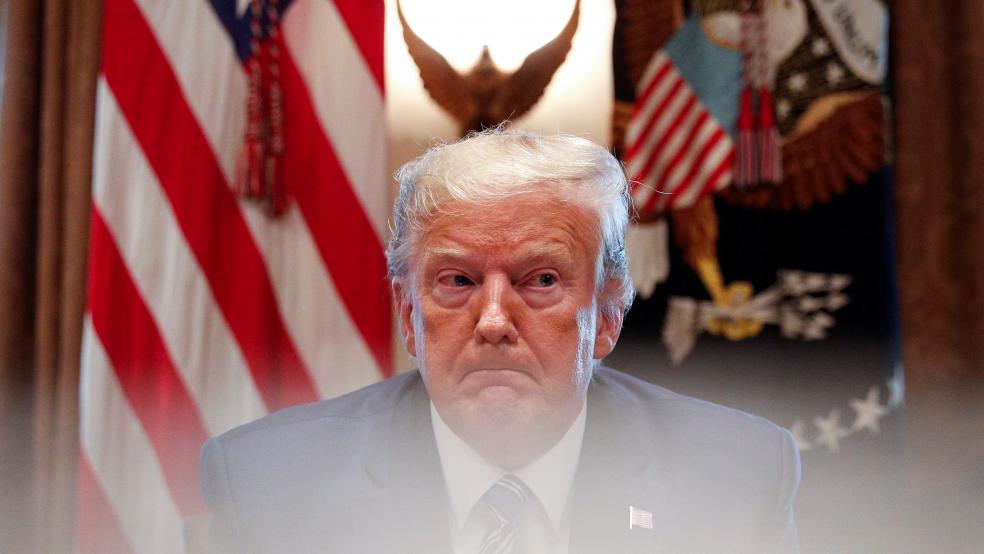President Trump is set to address the nation on the coronavirus Wednesday night at 9 p.m. ET as his administration scrambles to coordinate a public health and economic response to what the World Health Organization now calls a pandemic.
After days of trying to downplay the threat, Trump is facing calls to declare the outbreak a national emergency, which would enable the Federal Emergency Management Agency to use more than $40 billion from the Disaster Relief Fund to help local and state governments in their coronavirus efforts.
Senate Minority Leader Chuck Schumer and other senators are pressing for such a declaration, CNN reports. But Trump is reluctant to declare the outbreak an emergency.
“Trump’s concern at this point is that going further could hamper his narrative that the coronavirus is similar to the seasonal flu,” Politico’s Anita Kumar reports, citing three people familiar with the discussions. Kumar adds that the president is instead expected to approve a more limited designation that would allow the federal government to backstop small business loans, provide assistance to hourly workers and delay the April 15 tax filing deadline.
Democrats unveil their own proposals: As the administration pulls together its response and negotiates economic stimulus legislation with Congress, House and Senate Democrats on Wednesday assembled their own plans for a more immediate relief package focused on providing paid sick leave, unemployment benefits, free testing, food assistance and other help to people affected by the outbreak.
“In moving hastily to unveil their own plans, Democrats hope to set the terms of the debate and get ahead of the Trump administration, which is divided internally over what to do,” The New York Times reports. “The quick action carries risk for House Democrats, who do not want to be seen as trying to politicize a deadly epidemic. But it also puts pressure on Republicans to support a measure to provide aid for people who are sick or out of work amid a public health crisis.”
The House is expected to vote on its plan Thursday in hopes of sending it to Trump before the end of the week, when lawmakers are set to leave town for a scheduled week-long recess. House Majority Leader Steny Hoyer reportedly said that there won’t be enough time for the Congressional Budget Office to put together a cost estimate for the legislation, but that the tab would probably run into the billions of dollars.
“Right now we’re trying to deal with the direct impact of the virus on individual citizens,” House Budget Committee Chairman John Yarmuth (D-KY) said Wednesday, according to the Associated Press. “So paid family leave, making sure the tests are free to everybody, boosting unemployment insurance and so forth. That’s immediate. That’s tomorrow.”
Lawmakers would then revisit a broader stimulus package when they return. Treasury Secretary Steven Mnuchin reportedly backed that approach. Testifying before Congress, Mnuchin said he hoped to reach a deal within 48 hours and that the administration would seek a larger package in the future. “We want to get done what we can do this week, and we will come back,” he said.
Talks with the White House: Pelosi is also engaged in talks with Mnuchin over a relief package, though the White House and House Democrats reportedly remain divided over the specific elements to be included in that plan.
Lawmakers have largely panned President Trump’s proposal to zero out the payroll tax for employers and employees through the rest of the year, as have many economists. That tax cut would cost an estimated $700 billion, according to The New York Times, putting it on the order of the 2008 Wall Street bailout and the economic stimulus package that followed.
“A payroll tax cut would do little to help workers without paid sick days or those who have lost shifts and tips,” Senate Finance Committee Ranking Member Ron Wyden (D-OR), said in a statement. And Hoyer told The New York Times that the tax cut idea is a “non-starter.”





